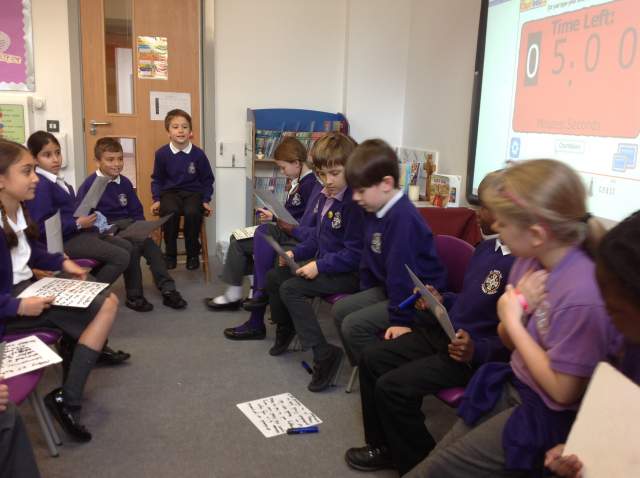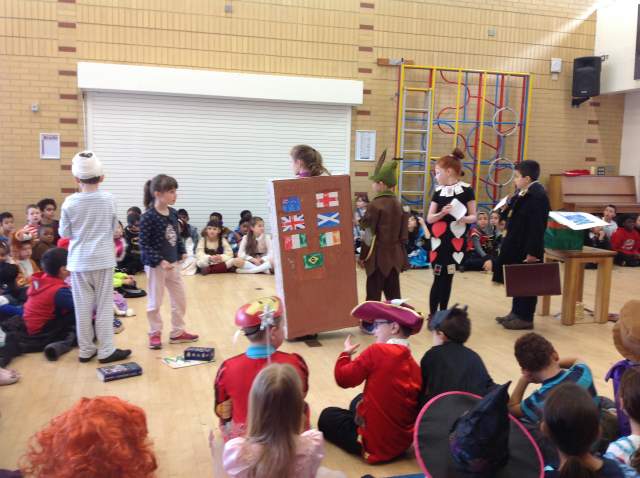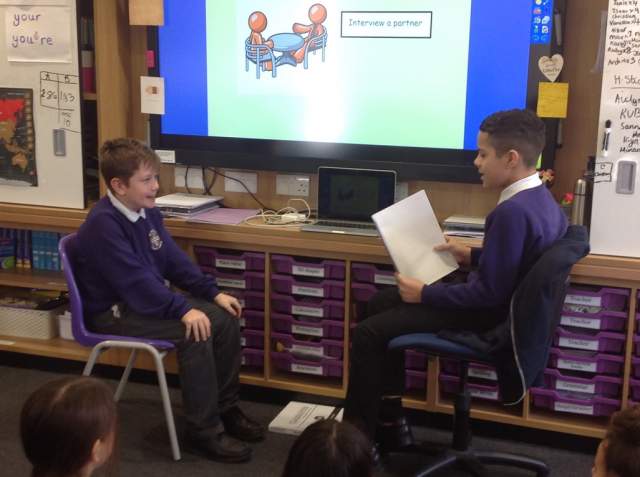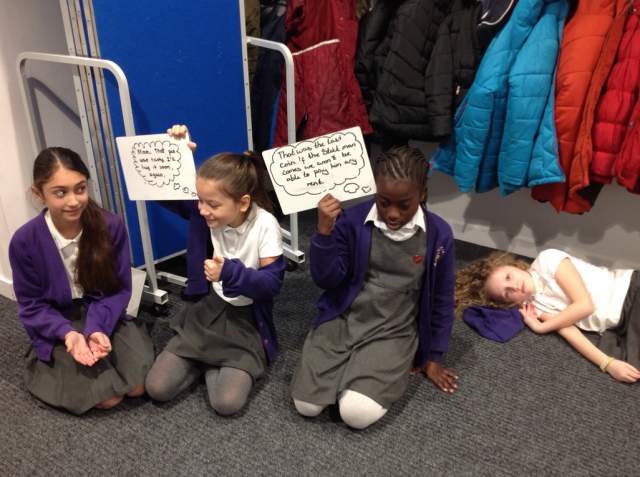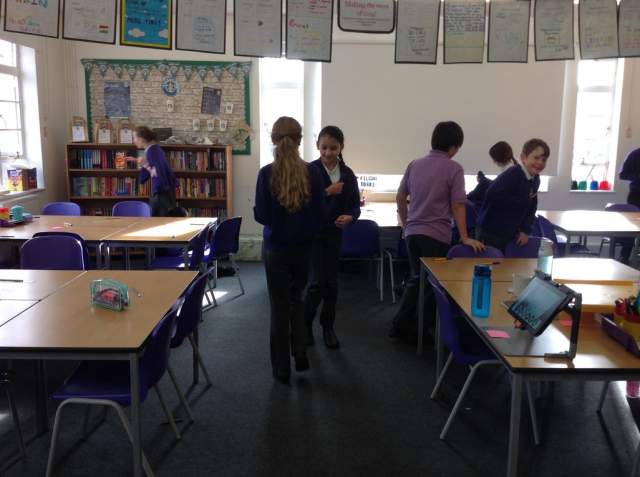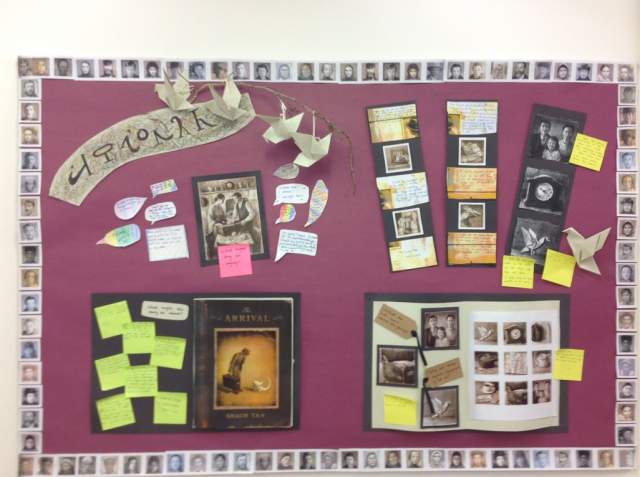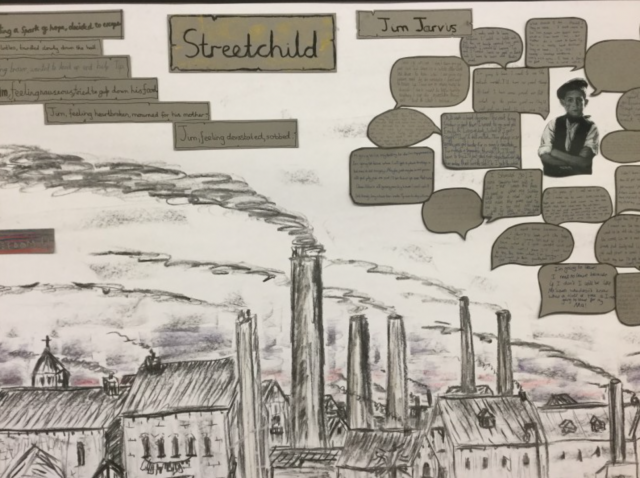English
The skills of language are essential in participating fully in modern society; therefore, all children should learn to speak, read and write both fluently and confidently so that they are effectively enfranchised.
With this in mind, at the heart of our curriculum, we aim for all children to leave St. Paul’s with an understanding of the rich legacy of the English language. Developing a love of reading and a desire to extend their vocabulary through an ever-changing variety of stories and other texts, provides the foundation for children to develop into enthusiastic speakers and performers; they will then become competent writers who can engage and maintain the interest of varying audiences.
The children should be able to read easily, fluently and with understanding. They should develop the habit of reading widely and often, for both pleasure and information. They should be able to use a wide vocabulary, and understand grammar, and the knowledge of different conventions for reading, writing and spoken language. They should appreciate local, national and world literary heritage, through a wide variety of inspirational texts. The children should be able to write clearly, accurately and coherently, adapting their language and style in and for a range of contexts, purposes and audiences. The children should use discussion in order to learn; they should be able to elaborate and explain clearly their understanding and ideas. Finally, they should be competent speakers and listeners, making formal presentations, demonstrating to others and participating in debate across the curriculum.
In the Early Years, children have access to a range of activities to develop early writing skills. Gross and fine motor skills are developed to support effective pen grip. The children are encouraged to label and write their names and other common words on pictures and other pieces of work. They have discrete phonics lessons using the Read Write Inc scheme, in which they learn to discriminate between sounds and to read and form the letters that make individual sounds. The children share and enjoy stories, rhymes and songs with their teachers and other adults. Through a range of resources they role play stories and everyday activities. They use pictures and word banks to write stories and other simple texts. English fluency is essential and the teachers provide a range of activities to support effective speaking and listening.
Children in Key Stage 1 build upon the skills developed in the Early Years. They have discreet phonics sessions each day. As in EYFS we use the Read Write Inc. programme in the teaching of phonics, and the children build on there progress in earlier years with a focus on writing sentences based on their Phonics work. In Year 2 there is a guided reading session in which they read with an adult, developing effective independent reading skills, comprehension and vocabulary. The children also have discrete handwriting lessons. English lessons are planned around a theme, often based on the CLPE Power of Reading scheme, with subjects such as traditional tales, writing instructions or poetry. Within each theme, children are taught particular reading, writing, speaking or listening skills. Children in Key Stage 1 also participate in the Big Talk and Big Write each week. This provides them an opportunity to prepare for and write a piece of sustained independent writing, implementing newly acquired skills. In Key Stage 1, spelling and reading form part of a child’s weekly homework. We use the Oxford Reading Tree as our main reading scheme, and Parents fill in a Reading Log to comment on progress.
Children in Key Stage 2 have differentiated English lessons every day, also based on the CLPE Power of Reading scheme. In years 5 and 6 we divide the children into groups for English. Each unit of work is typically a number of weeks in length. The unit has a central theme, often based on a book such as Varjak Paw, The Highwayman or Shackleton’s Journey, within which children refine their reading, writing, speaking and listening skills. We continue the Big Talk and Big Write sessions each week to support sustained, independent writing. The children have weekly spelling and grammar and are expected to independently fill in a Reading Record.
Downloads
There is further information about Reading and Writing and Year overviews available.
Please look at the PDFs below.
There are also downloads available on Book Passports and Spelling activities.
Please look at the PDFs below.
Reading at home is a priority so we have prepared letters with advice to help parents with this task.
Please look at the PDF’s below.
Reading for Pleasure is also a big focus in our school. We have been part of the ‘Get Hounslow Reading’ project, and have participated in the creation of ‘padlets’ of information. These will help parents support their children choosing and enjoying a wide variety of reading material.
Please click on the LINKS below

